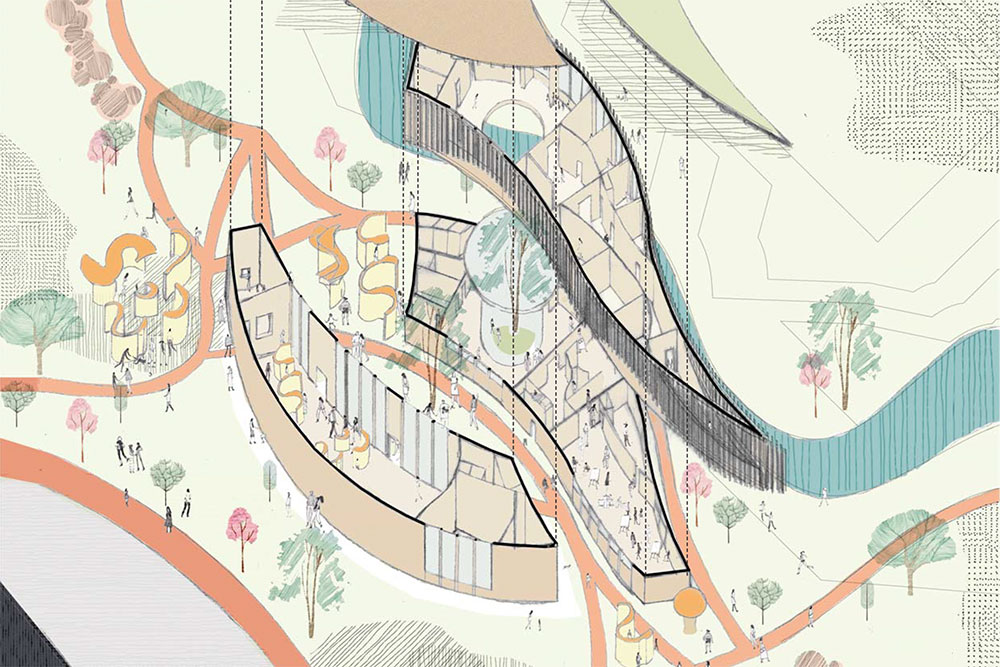PRAXXIS is a female led, cross disciplinary teaching atelier at the MSA in BA3, MArch years 1&2 and MLA2, investigating architecture, landscape architecture and urban design. We take an inclusive, socially driven approach, through the lens of intersectional feminism, to explore the inequalities in society and what that may mean for the built environment. Intersectionality acknowledges that the various layers of what we see as social and human characteristics - class, race, sexual identity, religion, age, disability, marriage status and gender identity - do not exist separately from each other but are interwoven as a complex matrix.
PRAXXIS encourages robust and open discussions, and we are interested in projects which are both personal and political. Our ultimate aim is to create places that can be shared by all.
“A Feminist Factory of …”
Students use feminist tools as a way of constructing project briefs that respond to the personal and the political. Each individual project explores inclusive understandings of how our identity affects our life and our work. By defining a project from a personal position (an experience or simply a passion) and placing it within a political context, project work often results in the re-definition of systems—a key tenant of feminism. The objective is to alter the existing system for the inclusion of others, and primarily create equity for others. The project subjects are vast in their range and inspire the teaching team year in and year out.
The overarching agenda for the BA3 working alongside the MArch1, has been a Feminist Factory of care on the shared theoretical site of the urban model of Ville Radieuse, the unrealised utopia by Le Corbusier with the aim to propose how it could become more inclusively feminist.
It has been important for the students to explore feminist technologies this year by discussing technologies which are collaborative, are gender equitable, or driven by need rather than just technological advances.
Finally, using feminist pedagogy we require our students to create individual Project Road Maps. Through this we ensure that these various key reflective processes are constantly discussed throughout the year. This is something we see as a crucial part of any successful feminist project. Each road map involves the navigation and communication of how and what the students have had to unlearn, learn, then had to re-learn, whilst constantly reflecting and finally self-evaluating.
PRAXXIS asks our students frequently:
- What kind of feminist architect do you want to be?
- How do you want to practice, not where and not for who?
- And what form of practice that might be?
Please check our work out on Instagram and Twitter on @praxxis_f


